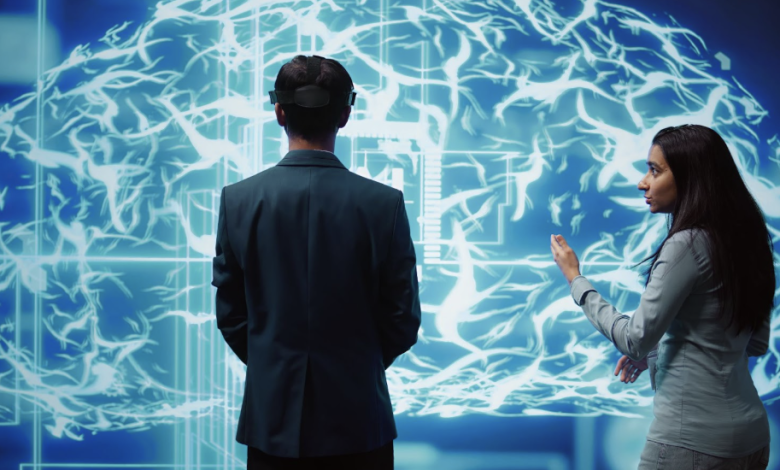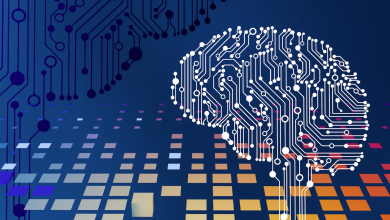
AI might run the numbers, but it can’t read the room. That’s still our job. Even as algorithms get smarter, leadership stays human. Basically, it’s about trust, empathy, and judgment, not just logic.
Business coaching bridges that gap. It helps leaders mix tech with heart. All this aligns innovation with ethics and clear thinking. In that light, the real power of AI is how people use it. And, coaches are here to explain and teach the core principles of using AI to build human-like business.
Why Human Leadership Still Matters in an AI World
AI can handle data analysis, forecasting, and it can even work at an amazing speed. But, in the end, it’s not nearly as good as a human would do it. It simply can’t build trust or inspire people to act.
Emotional intelligence, empathy, and moral judgment are still what crown a leader. In fact, studies from Harvard Business Review show that leaders with high EQ outperform their peers in both team satisfaction and long-term innovation.
That’s why great leaders don’t see AI as competition. The real use of AI is to help smart and talented people, not to make ordinary and lazy individuals talented. The most successful executives know when to follow data and when to follow their gut.
That’s why in the executive coaching platform, professionals are in charge of showing the leaders how to connect the dots. These coaches are best at teaching how to integrate AI and lead the whole team that uses AI because no algorithm can replace integrity or trust.
How Business Coaching Shapes AI-Ready Leaders
Business coaching is becoming one of the strongest allies for leaders getting into the AI era. The idea behind coaching is to show how AI can help executives, not the other way around.
In simple words, coaches help executives see AI not as a threat to their expertise but as a tool to work even smarter, harder, and with more focus.
Here’s how coaching shapes AI-ready leaders:
- Reflective questioning: Helps leaders challenge opinions about AI to see where it fits best.
- Goal-setting: Builds clear roadmaps to use AI, how, where, and why, everything’s included.
- Accountability: Keeps leaders grounded and reasonable with their goals and ideas.
Coaching for Ethical AI Decision-Making
Coaching about the ethical part of AI decision-making seems a bit out of place. But, coaches teach teams how to make AI fair, transparent, and responsible, not just fast. They cover the basics like bias, privacy, and accountability, showing why these things matter as much as performance.
It’s hands-on work: running risk checks, building diverse data sets, and making sure AI decisions can be explained clearly. The goal isn’t perfect code, it’s building trust, protecting people, and keeping AI honest.
Emotional Intelligence and the New Executive Mindset
Emotional intelligence, or EQ, is what keeps leadership human in a world full of machines that “think.” It all comes down to feeling smarter, not just working smarter. Daniel Goleman nailed it when he said the best leaders all share one thing: a high EQ, not just a high IQ.
Coaches know this well. They’ll tell you to write down what triggers you, ask your team what you’re missing, and actually listen when people talk. It sounds simple, but it’s way more complicated.
Today, EQ is what coaches are focusing on most. While the bots crunch data, emotionally intelligent leaders read the room. After all, algorithms can process information, but only humans can make people care.
Source: Freepik
Business Coaching and Human-AI Collaboration
Business coaching helps leaders and teams build the bridge with AI. It shows them how to combine human intuition with AI’s speed and accuracy.
Coaches also make sure ethics, engagement, and learning stay at the center of it all, because great tech means nothing without great people behind it.
| Coaching Focus | Human Strength | AI Contribution | Outcome |
| Trust & Transparency | Builds open communication and confidence in new systems | Provides clear, data-backed insights | Teams trust both their tools and each other |
| Adaptability Training | Encourages creative problem-solving and flexible thinking | Learns and adjusts from data patterns | Faster response to change and innovation |
| Ethical Decision-Making | Applies empathy, fairness, and judgment | Offers objective risk analysis | Balanced, responsible AI use |
| Employee Engagement | Motivates and connects teams | Handles routine, time-consuming tasks | More focus on meaningful, creative work |
| Continuous Learning | Promotes a growth mindset | Supplies feedback and performance data | Constant improvement on both sides |
The Future of Leadership in the Age of AI
As we can clearly see, the future of leadership is tied to AI and learning how to guide it. The best leaders will point AI in the direction of how it would best serve people. Business coaches will keep helping them stay grounded on the path.
Tomorrow’s great leaders will know when to follow data and when to follow their gut. They’ll mix efficiency with empathy. And that’s exactly why the human brain, with the help of AI, will be unstoppable.






